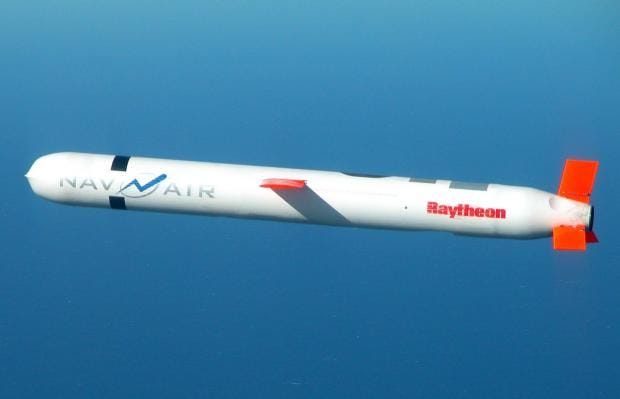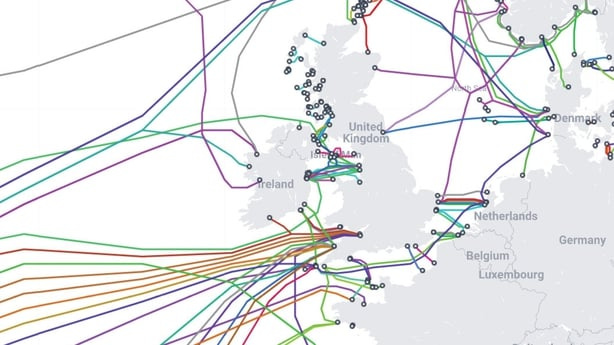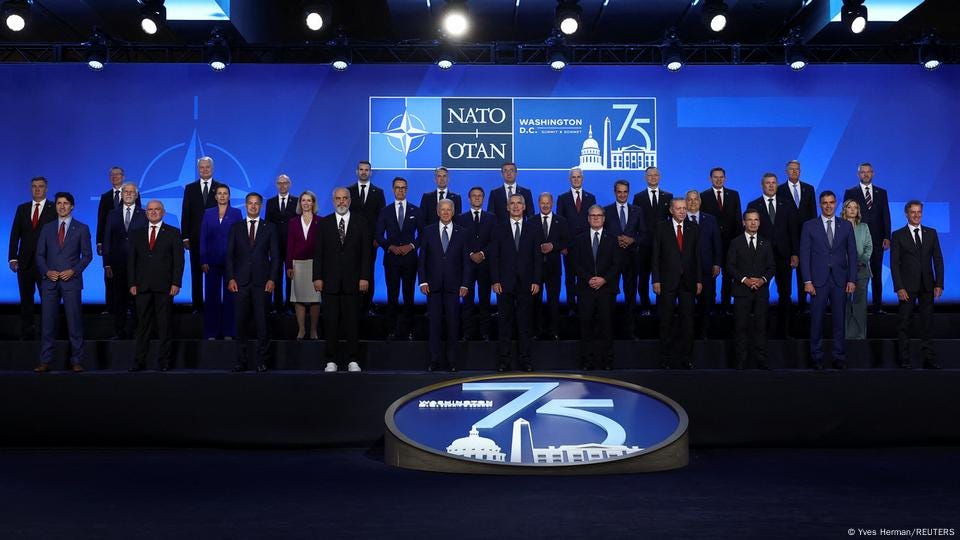An Irishman's Diary: NATO's 75th Anniversary
Washington and Berlin agree to deploy long-range weapons systems in Germany
Serving as an addendum to the recent Irishman’s Diary offering, “Operationsplan Deutschland” which reported on newly drafted detailed operational plans to ensure German society’s preparedness for military conflict. Operationsplan Deutschland goes into effect on 01.01.2025. Now news from the NATO summit in Washington…
NATO Summit
Since its creation on 4 April 1949, the transatlantic Alliance has grown from 12 founding members to 32 member countries. These member states have gathered in Washington this week for the alliance’s 75th-anniversary summit. NATO’s website claims it’s members have all been:
“…working together to keep our people safe. A community of Allies bound together by common values of democracy, individual liberty, human rights and the rule of law, NATO celebrated its anniversary on 4 April at NATO Headquarters in Brussels and at the summit on 9-11 July in Washington, D.C., where its founding treaty was signed.”
Joint Statement (10th July 2024)
Yesterday, 10th July 2024, the governments of the United States of America and the Federal Republic of Germany released the following joint statement on the deployment of American long-range weapons systems in Germany starting in 2026:
The United States will begin episodic deployments of the long-range fires capabilities of its Multi-Domain Task Force in Germany in 2026, as part of planning for enduring stationing of these capabilities in the future. When fully developed, these conventional long-range fires units will include SM-6, Tomahawk, and developmental hypersonic weapons, which have significantly longer range than current land-based fires in Europe. Exercising these advanced capabilities will demonstrate the United States’ commitment to NATO and its contributions to European integrated deterrence.
This does NOT make me feel any greater safety for my young family living in south Germany, in fact, quite the opposite.

”Common Values of Democracy”
The current, historically unpopular German government which has agreed (acceeded?) to the stationing of American long-range cruise missiles is currently polling at under 32% and achieved a similar percentage of votes cast in the recent EU elections (equating to ~21% of the electorate). In the UK, the Labour party has just swept to power on the back of 34% of votes (equating to ~20% of the electorate). In France, Marie le Pen’s National Rally Alliance outdid both the German and UK governments with 37% of votes and larger turnouts, but will not get a chance to govern as it only won 25% of parliamentary seats. Democracy in action.
In America (where typically over ~40% of the electorate don’t even bother to vote in its 2-party system) and where the ruling “Democratic” party refused to permit any challengers to its presidential candidate, a geriatric 81 year-old President refuses to step aside, instead seeking to hold onto power for “four more years”. Democracy in action.
Meanwhile, Ukraine, a country which has suspended (read: banned) a number of opposition parties and has not held elections since 2019, has once again been assured it is on an “irreversible” path to NATO membership. Incidentally, the President of Ukraine, Volodymyr Zelenskyy, swept to power in 2019 in a landslide election victory (with 73% of the vote) on promises of reform and doing everything to stop the war with Russia. Democracy in action.
“Individual Liberty”
To consider but one aspect, freedom of speech, the reader is invited to revisit previous Irishman’s Diaries detailing the increasing censorship, both official and unofficial, at play in Germany. And here, an excellent report by Nick Corbishley from earlier this year on the dangers of the EU’s Digital Services Act: EU’s Digital Services Act Poses Existential Threat to Freedom of Speech in Europe, Warns Retired German Judge
“Human Rights and the Rule of Law”
If the recent pandemic period in Germany taught me anything, it is that basic constitutional rights and the rule of law are not set in stone as they can be suspended overnight at the stroke of a pen by governments in times of alleged crisis. Note, France governed under a State of Emergency after the Paris attacks from November 2015 to November 2017 and again during the pandemic from March 2020 to July 2022. In Bavaria we lived under repeated State of Emergency during the declared pandemic: March 2020 - June 2020; December 2020 - June 2021; and November 2021 - June 2022.
NATO Summit Headlines
Deutsche Welle (Germany’s equivalent of the BBC World Service) has neatly summarised recent developments from the NATO summit as “What you need to know”, here:
NATO leaders of 32 member states meeting in Washington for the alliance's 75th-anniversary summit
Washington and Berlin agree to deploy long-range weapons in Germany
Member-states of the military alliance emphasize Ukraine’s path to membership is 'irreversible'
US says F-16 jets from the Netherlands and Denmark were en route to Ukraine
NATO pledged a further €40 billion (€43 billion) in military aid for Ukraine
And:
Chinese official slams "belligerent rhetoric" from NATO
Ireland and NATO
While Ireland is not a member of NATO according to an RTÉ report from earlier this year it does a have an individually tailored partnership with NATO:
“… relationship with NATO which is set out in what is known as the Partnership for Peace (PfP) which Ireland joined in 1999. Since 2022, that relationship has been governed by the Individually Tailored Partnership Programme (ITPP).”
And according to a spokesperson for the Department of Defence:
In November, Ireland’s individually tailored partnership was agreed, which aims to "enhance engagement in areas of cooperation of clear interest to Ireland, such as peacekeeping, maritime security and tackling cyber and hybrid threats".
Critical Infrastructure
And so we come full circle because such relationships ostensibly relate to increased concerns around security, for example, of sub-sea cables in Irish international waters. These cables are critical infrastructure not just for Ireland but for international commerce.

RTÉ provides background information on this subject in another article from November last year: Why are subsea cables off Ireland causing continental concerns?
Around 97 percent of the world's communications and internet traffic travels through a network of undersea fiber-optic cables. Almost ten trillion euro worth of financial transactions moves through it every day.
It is made up of over 550 individual cables, stretching to 1.4 million kilometers in total length. Three-quarters of all cables in the northern hemisphere pass through or near Irish waters, most of them off the southwest coast.
With global tension rising and disagreement growing between major geopolitical power players in the United States, China and Russia, Ireland’s oversight and security over these cables is coming in for increasing attention.
Ireland and EU Military Initiative
Last week, according to an RTÉ report (3rd July 2024):
The Dáil has approved a plan to allow Ireland join an EU military initiative to defend critical seabed infrastructure against sabotage, terrorism and espionage.
…
The Critical Seabed Infrastructure Protection project is part of the PESCO framework where EU member states cooperate to improve the capabilities of their armed forces.
…
Independent TD Catherine Connolly accused the Government of trying to erode the country's neutrality "bit by bit."
Catherine Connolly makes a very legitimate criticism. Just how much longer will Ireland maintain it’s long-cherished neutrality in these times of War and Pestilence?
Finally, reposing reader CM’s comment to last week’s post:
QUESTION: Who blew up critical German (& EU) energy infrastructure on 26 September 2022, the North Stream 2 gas pipeline?
Dear European Union citizen, you’ve taken the 50-50 joker and the following options remain:
A) It was a major NATO state whose long-range missiles will soon be deployed on German territory, and whose soldiers Germany is supposed to cater if/when they march through Europe en route to the eastern front against Russia.
B) It was a wannabe-EU, wannabe-NATO country whose soldiers various EU states are currently training, supplying, and funding to fight on the eastern front against Russia.
C) RussiaD) Germany




